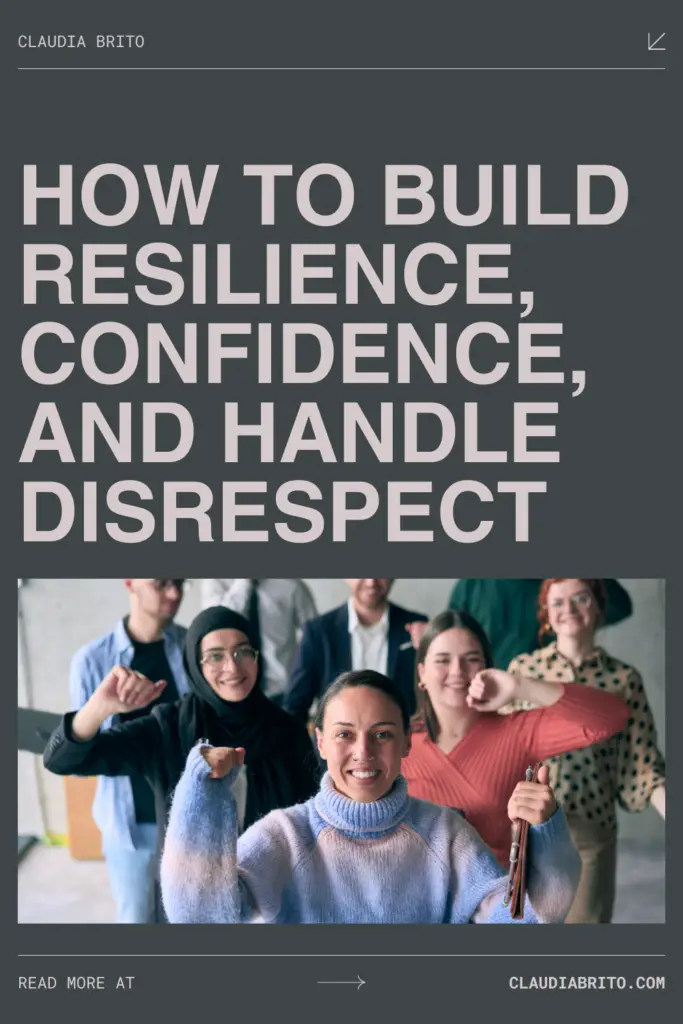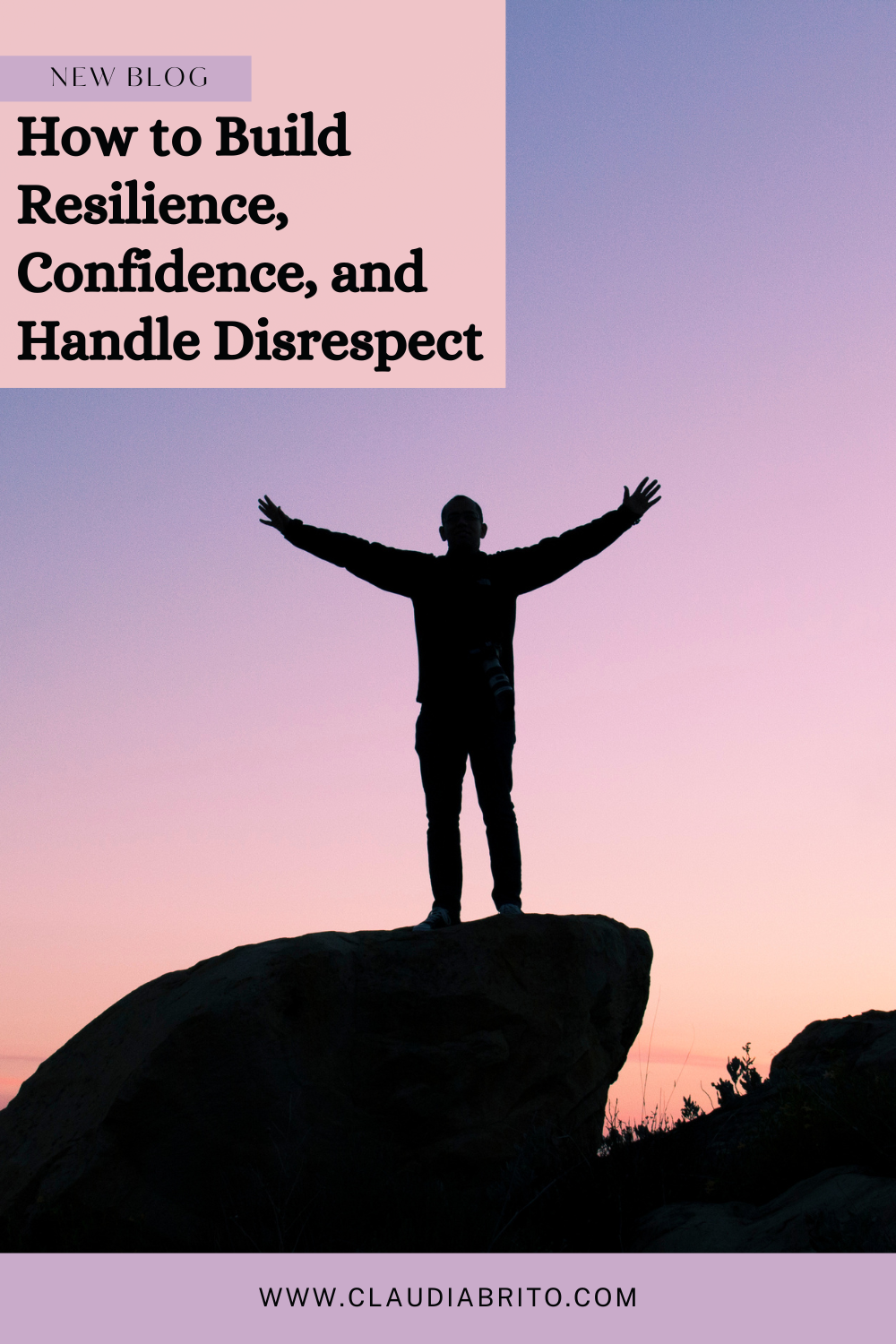Resilience, confidence, and the ability to deal with conflict are some of the most important qualities a person can have in today’s fast-moving and sometimes cruel world.
But none of these are inbred traits; they are cultivated through experience, introspection, and practice. In one truly fascinating interview, I watched Evy Pompouras describe with perfection how to master the art of self-control, develop courage, and stand strong in the face of adversity and disrespect. So let’s dive into what I have understood and some key factors that are important for our daily lives.

1. Adversity is Your Training Ground
Evy emphasizes that it is by adversity that one learns to focus on resilience. The more challenges you have faced, the stronger you will have become. If you try to avoid conflict, then you won’t be able to build up your skills for how to manage a real crisis.
Anyone who has ever lived has had an experience where someone disrespected them, crossed a line, or treated them poorly. Mostly, we freeze at such moments, act ineptly, and afterward wish we’d known how to defend ourselves. According to Evy, these situations offer the most useable moments of learning. Not in how to avoid conflict, but how to manage it with grace and poise.
My Takeaway: Allow adversity to be used as a tool to inspire growth. The more adversity you experience, the better prepared you will be in later conflicts.
2. Confidence Is a Skill, Not an Instinct
Some people believe that a person is either born with confidence or not, but to Evy, it is something that can be taught. According to her, not everyone is born knowing how to stand up for themselves; that is something one will develop through practice and experience.
Given Evy’s background in high-stakes situations, inner strength, and confidence must have been developed. Even the ability to stand one’s ground would not be merely about the physical; it would be mental. She learned how to keep her emotions under control, speak with authority, and present herself in a manner that others would give respect to.
The key takeout is this: confidence is something you develop. Practice standing your ground, taking emotional control, and speaking with conviction.
3. Master Yourself Before You React to Others
Before effectively dealing with conflict with other people, one has to learn to handle himself. Evy emphasizes self-discipline and emotional quotient. For instance, when someone disrespects you, there you go, bursting out in anger or frustration. Those few who have mastered their emotions can respond how, when, or if to react.
Evy tells a rather personal story when she describes how, during the protection of a U.S. president at G20 Summit, she was physically confronted by a foreign delegate. She did not allow him to get under her skin, handled the situation with dignified diplomacy, and reined in her emotional control.
Takeaway: It is all about self-mastery; own your reactions before attempting to address anybody else’s disrespect.
4. Power in Your Voice and Body Language
The bottom line of every conflict, in one way or another, hangs in the balance on how you carry yourself: tone, enunciation of voice, and body language. Speaking with confidence means more than uttering the right words; it is speaking them in a fashion that leaves no room for doubt.
In fact, saying, “You can’t go in this room,” really all boils down to the accuracy with which it’s said. Your tone speaks volumes of your pitch and tells them whether you are authoritative or not, much like your body posture does. According to Evy, people respect confidence, so it is not bad to show oneself with confidence when saying what needed to be said.
Key takeaway: Speak and hold your body with conviction. The tone and kinesics in delivery should be congruent with the message.
5. Pick One’s Battles Carefully
Not every battle is worth fighting. Evy reaffirms how one should pick the right battles. Some circumstances or people are just not worth your time or energy. This is not about avoiding any conflict, only knowing how and when to fight.
More often than not, small slights and minor disrespect are better off simply ignored, since that can save oodles of energy and protect your peace. Then again, sometimes it is good to notice whether someone is testing your border, for such repeated offenses may grow bigger if unchecked.
Key takeaway: Decide which conflicts are worth your time. Evaluate the situation and the person before responding.
6. Trust and Betrayal
Trust is such a complex part of a human relationship; Evy explains that there are two kinds of trust:
Conditional trust: This is a trust exercised in business and transactional relationships where one expects that a person might betray them, so that one remains cagey.
Unconditional trust is the kind one would normally reserve for close, personal relationships where one would never expect betrayal, hurt, or pain; if it does, it is devastating. Evy believes that a betrayal by someone in whom you place unconditional trust—family, close friends, or even your partner—is much more painful than conditional ones and would hurt more than in business. Knowing this kind of trust exists helps one to evaluate any given relationship and how to protect the emotional energy one has.
Key: Distinguish between conditional and unconditional trust. Catch the warning signs that you are being betrayed so you can set boundaries for everyone’s protection.
7. Emotional Intelligence and Self-Esteem
Evy emphasizes that emotional intelligence, or “knowing your feelings and others’ and keeping them in check,” should be utilized when disrespect is involved. “It’s not about being always responsive, but in some case, it is wise to step back and evaluate the situation,” she explains.
Here comes, once again, the question of self-worth. As Evy explained, people learn how to treat you based on your level of tolerance. If one doesn’t make any consequences after people have crossed the line, they will keep crossing it.
Takeaway: Emotional intelligence points to conflict management. People will learn how to treat you once you come up with self-worth and boundaries.
8. Dealing with Betrayal and Knowing When to Walk Away
Especially when it is close to you, can be one of the most challenging occurrences to handle.
Evy emphasizes that every time someone repeatedly lies to, disrespects, or betrays you, you need to know when to walk away. Not every relationship can be or should be salvaged, and at times, distancing yourself with empowerment may be the best thing to do.
Evy says that once she has made up her mind to cut ties with someone, silently and with no drama is the way to go. There is no need for a big confrontation—just a gradual pulling back until such a person is no longer within your inner circle.
Key take-out: Walk away from toxic relationships. Remove damaging people from your life; protect your peace.
Conclusion
Conclusion Strength through Resilience Literally everything in Evy’s life—from her work as a Secret Service agent to most of her personal relationships—has taught her that strength is most times a form of resilience and emotional intelligence. It is in these small slights and high-level betrayals that the most important thing you can do is be firm in yourself, keep your emotions in check, and choose your battles wisely. The more adversity you get, the more resilient you are. And learning to handle being disrespected and confronted stands with you for life.
YOU MIGHT ALSO LIKE
Caring for Chemically Treated Hair: Tips for Healthy, Beautiful Hair
Chemically treated hair can look amazing, but it requires special care to stay healthy and strong. Whether you’ve colored, bleached, permed, or relaxed your hair, chemical processes alter…
4 min read
How Hydrating Treatments Revive Heat-Damaged Hair: Complete Guide to Repair and Care
Introduction Heat styling tools like flat irons, curling wands, and blow dryers can help you achieve your desired hairstyle, but they can also wreak havoc on your hair.…
4 min read
How Green Tea Boosts Hair Growth: Benefits and Science
Introduction Green tea has become a go-to ingredient for health-conscious individuals, and its potential to enhance hair growth is gaining recognition. Thanks to its powerful antioxidant properties and…
4 min read
Does Caffeine Really Promote Hair Growth?
In the ever-expanding world of hair care, caffeine has gained a reputation for its potential in promoting hair growth and reducing hair loss. While caffeine is best known…
4 min read
The Role of Exercise in Promoting Hair Growth
Hair growth is a complex process influenced by factors like genetics, diet, hormonal balance, and overall health. Among these, exercise stands out as a significant contributor to healthy…
4 min read
Chic and Simple: The Guide to 25 Styling Short Nails
Short nails are often underrated, but they offer a world of possibilities for style and care. Whether you’re a fan of minimalist designs or bold, creative looks, short…
4 min read






